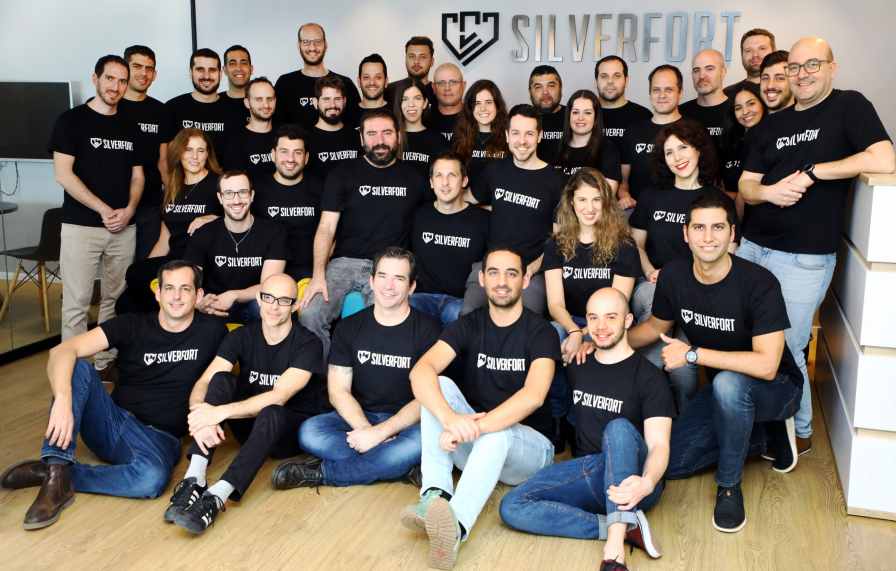General Motors and Citi Venture join $65M investment in Israeli cybersecurity startup Silverfort to detect and stop identity-based attacks across organization

The increase in remote work accelerated by the pandemic and the shift to hybrid and multi-cloud environments is driving the need for secure authentication and access of corporate users beyond their organization’s perimeter. More than ever in the history of computing, companies are now faced with daily cyber attacks as they depend on IT infrastructure and services beyond their organizations. That’s why this Israeli cybersecurity startup is on a mission to provide robust threat protection within and beyond the organization’s footprint.
Silverfort is a Tel Aviv, Israel-based tech startup and provider of the world’s first Unified Identity Threat Protection platform. The company delivers organizations to prevent, detect, and respond to identity-based attacks across all users, systems, and environments. Via its platform, Silverfort secures authentication and Zero Trust policies across corporate networks and cloud environments, without deploying any software agents or inline proxies.
Today, Silverfort announced it has closed $65 million in Series C funding to scale the business and team globally and continue to expand the platform’s unique technological advantage. The latest investment brings Silverfort’s total funding to over $100 million.
The round was led by Greenfield Partners, with participation from other VC’s and strategic investors, including GM Ventures, Acrew Capital, Vintage Investment Partners, and existing investors StageOne Ventures, Singtel Innov8, Citi Ventures, Aspect Ventures, and Maor Investments.
Founded in 2016 by Hed Kovetz, Matan Fattal, and Yaron Kassner, Silverfort enables secure authentication and access in a unified manner across all corporate resources, both on-premises and in the cloud, to detect and stop identity-based attacks including account takeover and ransomware propagation.
“The company has spent years building a best-in-class platform to solve holistically a growing security problem now gaining mainstream awareness,” said Avery Schwartz, Partner at Greenfield Partners who will join the company’s board of directors. “We are energized both by the positive impact the company’s technology is having and by the leadership’s vision and passion. It is clear to us that Silverfort’s strong momentum in the market is just the start, and we are excited to join them on this journey.”
Silverfort delivers Identity Threat Detection and Response (ITDR) and Identity Threat Prevention (ITP) capabilities as a unified layer on top of a customer’s existing Identity and Access Management (IAM) infrastructure, including both modern and legacy solutions, to stop identity-based attacks across the enterprise.
Silverfort’s patented technology achieves this in a way that doesn’t require modifications to the customer’s endpoints, servers or applications – a capability that is currently unmatched in the market. It also enables customers to extend security controls such as Multi-Factor Authentication (MFA) from any vendor to previously unsupported resources and environments, or even consolidate their hybrid IAM stack by ‘bridging’ legacy systems and protocols into modern identity platforms like Azure AD.
“Identity security can no longer be a ‘feature’ that works in silos within each IAM platform, while leaving many sensitive resources out of scope,” said Hed Kovetz, Silverfort’s Co-Founder and CEO. “This lack of end-to-end identity threat protection has turned identity into today’s #1 attack surface, with compromised credentials being leveraged in 80% of all data breaches and ransomware campaigns. This problem required a new approach to identity security: a unified Zero Trust security layer that works on top of all modern and legacy IAM infrastructure, and covers all users, resources and environments.”
According to Gartner®, in the Top Trends in Cybersecurity 2022 report (February 2022), “Many IAM tools are operating in silos that are not visible to incident responders. Organizations must re-evaluate their IAM infrastructure with a goal of identifying opportunities for detecting compromise and immediately investigating and responding… This year, we are introducing a new term, ’identity threat detection and response’ (ITDR) to describe the collection of tools and best practices to successfully defend identity systems from endemic levels of attacks.”
“We are uniquely positioned to become the leader in ITDR and identity security in general, having spent years building and perfecting our unique platform for this exact purpose,” Kovetz added. “Our agentless and proxyless technology consolidates detection, response, and prevention across all IAM platforms – even in places where it was completely missing. Many of our customers have reported cases where the platform detected and stopped account takeover, lateral movement and ransomware propagation attempts. Our approach is already changing the identity security market and will gradually reshape it completely. The numbers speak for themselves: over 90% of those who trial our platform become customers, and we are adding a double-digit number of customers every month.”




